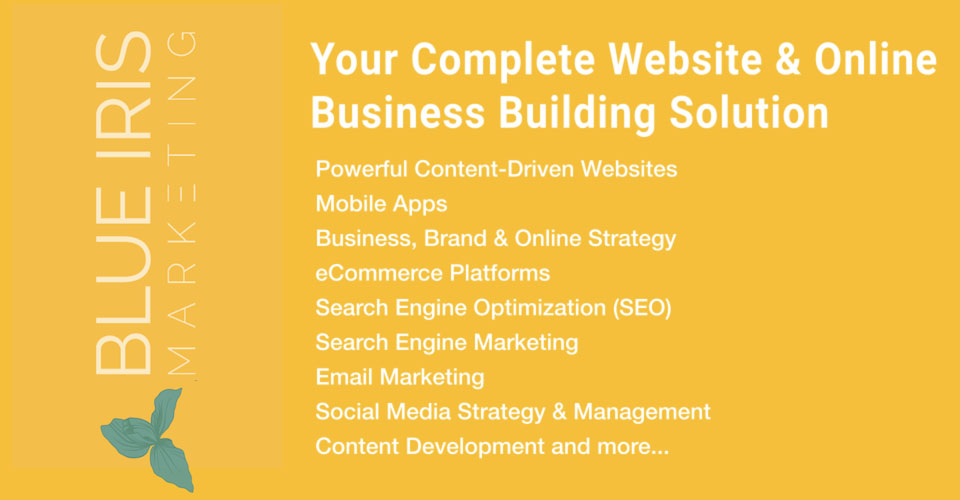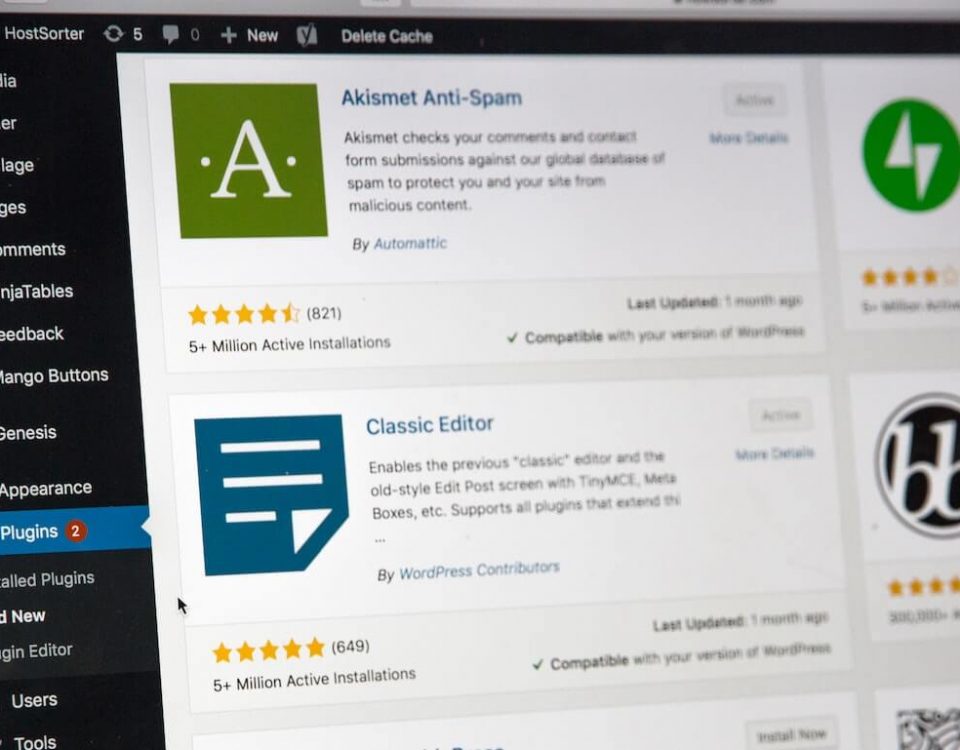Grow your business with Email marketing

How to increase your website conversion rate?
November 23, 2015
The What, Why and How of Successful Business Blogging
December 14, 2015Wondering if email marketing is obsolete and outdated? Is it a thing of the past?
Email marketing not only establishes a direct link to your customers, it is the most cost-effective advertising method available today.
What exactly is email marketing?
Email that is sent to specific audiences to make a connection or to sell something is email marketing. Email that you send to potential or current customers in order to build trust in your product or business, customer loyalty or brand recognition, can be considered email marketing. Email marketing is used to:
- Connect and nurture quality customer relations
- Acquire new customers or persuade current customers to buy something right away
- Promote the marketing messages or advertisements of other people or companyies
Email marketing is one of the most powerful marketing tools available. There are over 3.2 billion active email accounts in the world today. With a response rate 25 times greater than the response rate of banner ads, five times greater than direct mail and 40 times more successful at acquiring new clients than Facebook and Twitter, email marketing is the most effective way to increase sales, drive traffic and develop brand loyalty. Email marketing is easy, affordable and effective. Due to its simplicity, email marketing is also highly adaptable and flexible and can be used to promote your business in a variety of ways.
There are three types of email marketing:
- Direct email provides direct information about your new products or services, sales and special offers to your targeted audience. It is a promotional message in the form of an email. The message can be text, HTML, or rich media. This kind of email is different than spam in many ways – it is not sent randomly to an entire diversified list. It is sent to an audience that has opted in to receiving messages from your company. Subsets of the sender’s list is selected according to certain criteria. The email should be personalized to increase the read rate.
- Retention email is most commonly an email newsletter. It may also host promotional messages or advertisements and may contain a range of content that is not exclusively related to making a sale. The most important purpose for an electonic or email newsletter is to develop and maintain a long term relationship with the readers by providing them with important information that is meaningful and releveant to them – information they cannot gain on the website or anywhere else. You can build credibility with your readers by sharing helpful and informative content. The goal is to keep a customer interested in the brand and engaged with your business at all times not just when they are buying.
- Advertising in other people’s emails is another powerful way to utilize the power of email marketing to specific audiences. In most cases, company “A” pays to have their advertisement publised in the newsletter of compay “B.” Many companies sole business purpose is selling advertising space in their newsletters that are then sent to their subscribers.
What are the benefits of email marketing?
The average office employee receives about 80 emails per day, and it’s expected that the total number of email accounts will reach more than 4.9 billion by the end of 2017. Successful email marketing can have an enormous impact on your business. The main benefits are:
- Cost Effectiveness – One of the most obvious benefits of email marketing is its power to reach your customers right where they are – every hour of every Email marketing is the least expensive, highest yielding ROI form of online marketing.
- Return on investment – Research shows that companies that send fewer than 100,000 emails per month see an average of 139% return on investment. Eighty-one percent of US digital shoppers are likely to make additional purchases because the emails are targeted.
- Targeted audience – Email marketing should only be sent to those who have signed up to receive information from your company. Sending marketing emails to people or companies that have requested to receive information from you results in a much higher conversion rate. Using a good email platform is important for many reasons. In addition to effectively managing your various email lists, a good platform allows you to select consumers from your lists that fit your specific demographic, behavioral, contextual and geographic targets. More than 50% of email subscribers spend up to 60 minutes browsing marketing emails during the week. Targeting your messages to the most relevant recipients will significantly improve your business performance.
You can measure results – One of the greatest benefits of email marketing is that you are able to very easily measure your results. The most important metrics to track are:
- Delivery rates – Low delivery rate means that your list may be outdated. If you are getting a low delivery rate, you’ll want to focus on list development tactics.
- Open rates – High open rates mean that you are using compelling subject lines. Once your email has reached customer inbox, you have less than three seconds to capture (or lose) the interest of the reader. Subject lines with more than 25 characters are more likely to be read than subject lines with less than 25 characters.
- Bounce rates – The bounce rate is the percentage of total emails sent in a specific campaign that were not deliverable. There are two types of bounced rates:
- Hard bounces are emails that will never be successfully delivered because they are permanently rejected. They are the result of an invalid, closed, or non-existent email address. These email addresses should be deleted from your email list.
- Soft bounces are emails that are temporarily rejected and have the potential to be successfully delivered. A soft bounce implies that the email will be delivered once the problem is resolved. In some cases, these emails may have to be sent Soft bounces can be the result of a recipient’s full inbox, server problems or perhps that your message exceeds the recipient’s email size limit.
- Click through rates are the number of users who click on a link, button, or image within your email. Regardless of the number of times a user clicks on a specific link, only one click is recorded. To achieve high click through rates, the content of your email needs to be relevant to those who opened it. Segment your email list by topics of interest to your customers and the click through rates will go up.
Final Thoughts
While understanding all of these elements are important, if you don’t include a strong and relevant call to action, you’ll miss out on the very purpose of the email – getting the reader to take a specific action. Developing an effective call to action shouldn’t be difficult. What is the action your reader should make… what action or offer will better the reader or their business? Be sure to use your keywords, design your buttons with contrasting, action inspiring colors and be certain that your call to action is relevant to your reader and your offering and be sure it moves your audience strategically through your marketing funnel.
Need some help with your content marketing or email strategy? Call or email me. I’ll get you on the road to success and sales faster than you can say, “What do I do next?”






